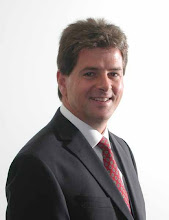As the old adage goes, “perception is reality”. In the absence of facts or prior knowledge, what a person perceives about a business becomes reality in their mind, even if it not actually correct.
Business owners should keep this in mind when hiring and training staff, and in all their future interactions with customers. It can be particularly important when the owner is focused on the technical delivery of the core business function and becomes detached from thinking from his customers’ mindset. Many customers have a limited understanding of the technical aspects of what the business actually does because they do not have the specific knowledge or skills of the trade, or actually care about such things for that matter. What they DO understand however, is how the business and staff PRESENT to them, and often in ways totally unrelated to the core function of the business. A restaurant may have the best award winning food and the top chefs in the country, but if the toilets are not clean many customers won’t come back as they assume the kitchen and chefs are in a similar state.
These are things that Paddy Lund, a famous dentist in Australia, calls Critical Non-Essentials. Aspects of business that have little or no bearing on the core service delivery process, but are just as important, BECAUSE THE CLIENT UNDERSTANDS THEM. Ignore them and you risk your business suffering, even if you are the best at what you do and have the best products or services on offer.
The famous management guru, Tom Peter, reported another example of this phenomenon in action. A study of 140 former patients from 225 U.S. hospitals revealed that of the top 15 factors determining “patient satisfaction,” none—NONE!—was related “to the patient’s health outcome.” The two biggest contributing factors were “staff interaction [with the patient]” and hospital “employee satisfaction.” The implications are clear: An obsession with the “simple” human factors pays off—and, furthermore, these sorts of reactions grow rather than diminish in the patient’s recollection with the passage of time. The rallying cry of one successful hospital, derivative of these findings, is their “kindness is free” strategy. Listening to patients or answering their questions was encouraged, and by-the-way costs nothing. Being non-responsive to patient needs or requests for information results in them being angrier and less co-operative, thus increasing the time and therefore cost of interacting with them. Being nice pays off.
What are the Critical Non-Essentials in your business? Have you ever taken the time to consider this? If not, I suggest you contact me and we can review your business and develop a customer orientation program that will help you build greater customer satisfaction, more referrals and lead to better profits. Either email me direct andyburrows@iconbusinesssolutions.com or visit my website here: Coaching in Business to find out more about what I do with the owners of private businesses.




No comments:
Post a Comment